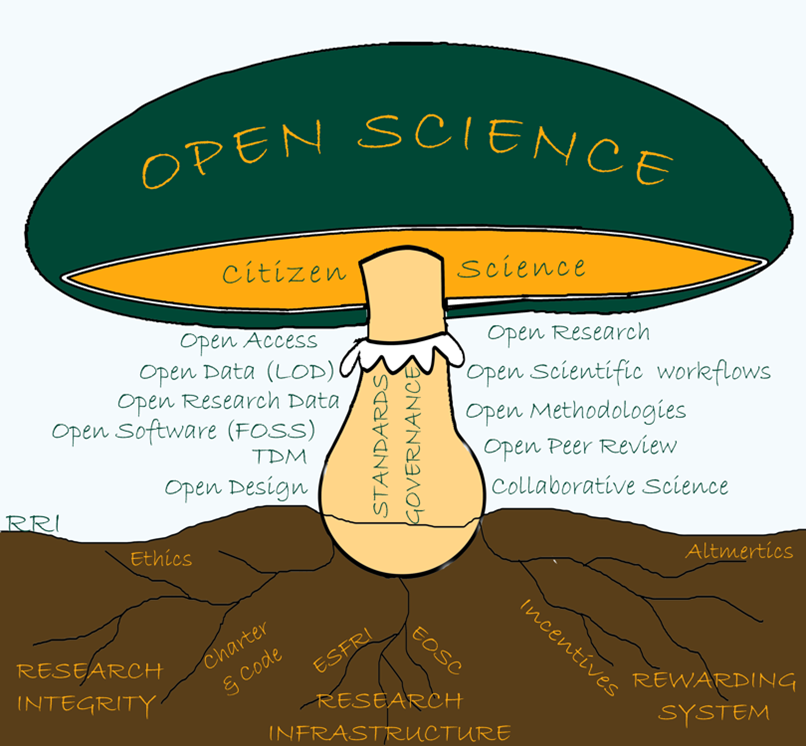
The Benefits of Open Science are Not Inevitable
The Benefits of Open Science are Not Inevitable https://opusproject.eu/wp-content/uploads/2024/04/Open-Science-Mushroom-LSE-Impact.webp 806 746 Open and Universal Science (OPUS) Project Open and Universal Science (OPUS) Project https://opusproject.eu/wp-content/uploads/2024/04/Open-Science-Mushroom-LSE-Impact.webpOpen Science (OS) has emerged as a pivotal policy focus and a transformative paradigm for scientific research. However, as the momentum behind OS grows, so does the need for comprehensive monitoring frameworks that align with the values driving this shift. Ismael Rafols, Ingeborg Meijer, and Jordi Molas-Gallart advocate for a nuanced approach to monitoring OS, one that goes beyond simplistic metrics to capture the diverse array of practices and their impacts.
Amidst a flurry of policies and investments, monitoring OS progress has become a priority at both European and national levels. Initiatives such as OS monitors in France and Finland, along with projects by the European Commission and UNESCO, underscore the global commitment to advancing OS principles. Yet, monitoring OS presents unique challenges due to its multifaceted nature, encompassing everything from open access publishing to citizen engagement.
Rafols and his colleagues argue that traditional metrics fail to capture the essence of OS, which transcends mere quantification. Instead, monitoring efforts should focus on understanding the trajectories of OS development, including who adopts OS practices and what effects they have. This necessitates a shift from assessing the quantity of OS to examining its quality and diversity.
Drawing parallels with the evolution of science policy models, the authors propose a new monitoring framework aligned with the principles of transformative innovation. Learning, directionality, and outcomes emerge as key pillars of this framework, emphasizing the need for continuous reflection, understanding of trajectories, and assessment of real-world impacts.
In practice, this means adopting a formative approach to monitoring that fosters strategic decision-making and embraces epistemic diversity. Rather than fixating on a narrow set of indicators, monitoring should be pluralistic and adaptable to different contexts. By capturing the trajectories of OS across various dimensions, from open access to open data, monitoring can provide insights into the implications of different approaches.
Furthermore, monitoring should extend beyond outputs to encompass outcomes, examining not just what is being done to support OS, but how it is being used and its broader societal effects. Interviews and surveys play a crucial role in understanding the nuanced ways in which OS is shaping research practices and outcomes.
Ultimately, the goal of monitoring OS is not merely to assess its prevalence but to ensure that it aligns with its ideals of inclusivity and sustainability. By adopting a reflective learning approach, monitoring can guide OS activities towards transformative outcomes that benefit society as a whole.
As OS continues to reshape the scientific landscape, informed monitoring will be essential in realizing its full potential and realizing a future where science truly serves as a global public good.
Article from LSE Blog.
Photo via OpenAire (based on Eva Méndez).
- Posted In:
- Open Science News




